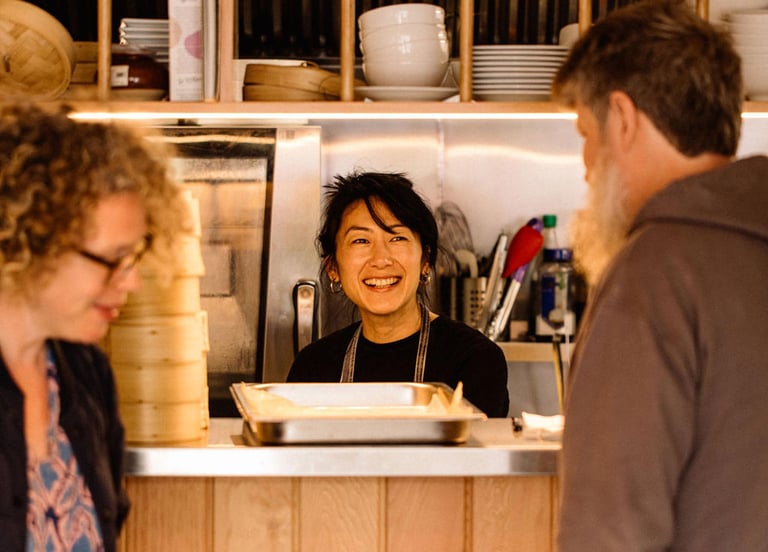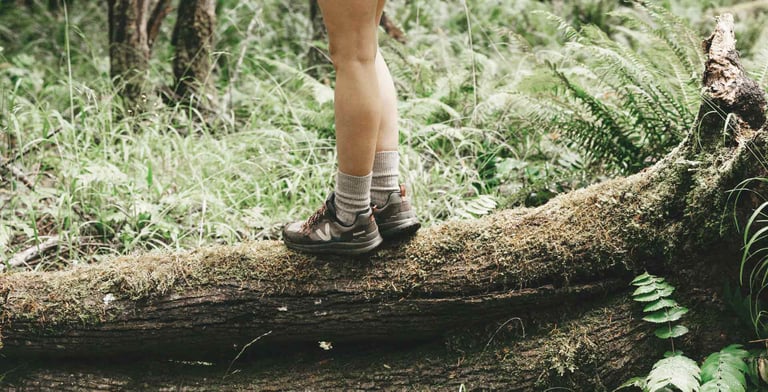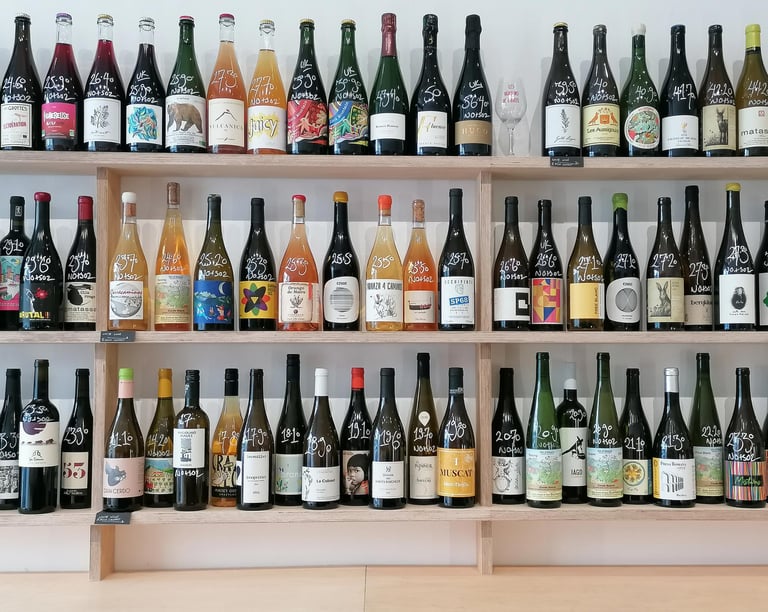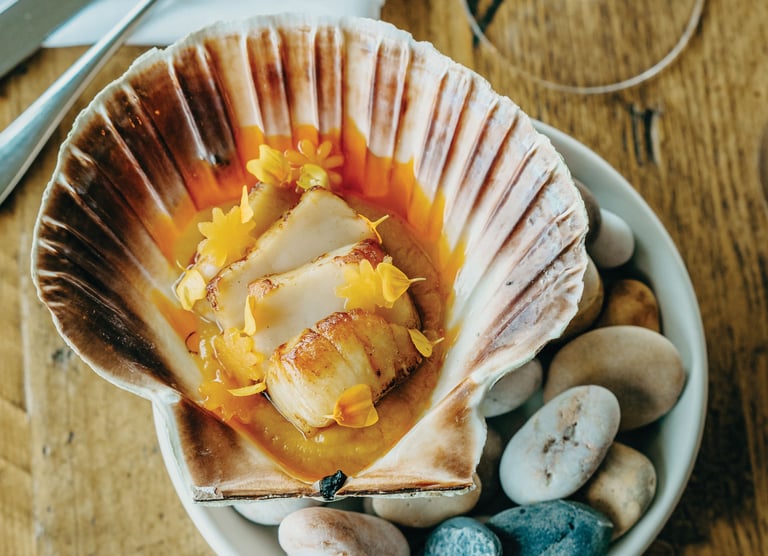The B Corp logo is appearing on the packaging of South West brands such as Rodda’s, Riverford, Sharpham Dairy and Two Drifters. But what does it mean for consumers? Jo Rees finds out
‘Business as a force for good’ is the B Corp mantra. Its logo – a capital B surrounded by a circle – certifies that the business sporting it is a B Corporation (B Corp) which has achieved high standards of social and environmental performance, transparency and accountability. It’s essentially a big gold star for companies doing good things in the areas of governance, employment, community and environment.
B Corps are popping up across the world (there are currently around 4,000 in 77 countries), so it’s no surprise to also find them in the South West food and drink scene.
Large local businesses Origin Coffee, Riverford and Rodda’s share the accreditation with smaller brands such as Devon’s Two Drifters Carbon Negative Rum and Bristol’s Sapling Spirits. And with lots of audits currently underway, we can expect to see the B Corp logo appearing on more local products in the near future.
Many hail the accreditation as a shining example of business taking the lead where government has been slow to legislate to protect the planet and its people. Others dismiss it as a cliquey fad or even greenwashing. So what do local businesses that have embraced B Corp have to say about it?
Bit of a grind
Sarah Walker is sustainability officer at Origin Coffee, the Cornish roastery in Porthleven which supplies speciality coffee beans to its own cafes in Cornwall and London, as well as to hundreds more across the UK. She says: ‘We achieved B Corp certification in 2020 and will recertify next year. It’s quite a commitment, but the lockdowns gave us the opportunity to spend time on it. It took about six months of work before we had the official audit.
‘It’s not a straightforward process as you have to get really granular with the business and have an overview of all the operations to answer the questions properly, but for Origin it was worthwhile. For us, it aligned with some of the work already going on in the organisation, such as our industry‑leading parenting policy that includes maternity, paternity, IVF and adoption leave. However, we also had to start writing policies for areas we weren’t already engaged in, such as improving stakeholder engagement.’
Origin has long been committed to trading directly with farmers in the coffee‑growing belt to build personal relationships and ensure quality and best practice. This involves regularly visiting farmers at source and paying them fair prices for their beans. Sarah says: ‘As a third party, B Corp helped us evidence this process – so we’re not marking our own homework. That’s important in speciality coffee because you don’t want to close doors to a partnership with a farmer just because they haven’t paid to get organic certification but may be operating in that way regardless.’

Planet-positive rum
Gemma Wakeham, CMO and director of B Corp accredited Two Drifters Carbon Negative Rum in Exeter, also reports using the accreditation to evidence and refine what they were already doing. She says: ‘We don’t do what we do just to achieve B Corp status. We created our business with sustainable processes and plans in place, so it made sense to add B Corp to our plans. It enhances the story and mission we already have.’
Two Drifters’ rum is made in a distillery run on 100 per cent renewable energy and, among other environmentally friendly innovations, the company uses electric vehicles, carbon‑neutral packaging and a closed‑loop chilling system. Did this make it easier to achieve the accreditation?
‘We obviously scored very highly on our environmental processes, but there were areas where we learnt a lot and improved. You need to prove your business believes and demonstrates an interest in more than just profit, and that you want to be a force for good for the planet, the community and your employees. Each step is lengthy and thoroughly evaluated. It took us ten months from start to finish.’
Two Drifters isn’t the only Devon rum wearing the B Corp badge. Hattiers Rum in Holbeton was the UK’s first B Corp certified rum and has been plastic free from day one. It also boasts a carbon‑negative workforce.
Sustainable for growth?
Of course, there are many South West food and drink businesses that are B Corps in all but name: they look after their employees and are environmentally responsible, yet don’t want or can’t afford to undertake the process of B Corp accreditation.
Henry Waite is founder and managing director of environmental consultancy Blue Marble in Exeter, which helps businesses across the UK work towards carbon neutral and net zero status. It audits businesses based on environmental factors alone. Henry says: ‘We’ve found ourselves supporting companies’ B Corp applications by working with them on their environmental footprint, so they can tick those boxes. My personal view is that B Corp accreditation is a strong accolade to have for now, but can it respond to trends? We’ve seen similar things come and go, and my understanding is that once you’ve embedded the B Corp criteria into your business, you can’t reverse them without dropping out of the scheme.’
To achieve B Corp status, a business must make a legal commitment to change by altering its corporate governance structure so it becomes accountable to all stakeholders, not just shareholders. Henry says: ‘You put in place employment contracts such as pension plans, flexible working hours, working from home and good wages compared to the sector, which is great. But, for me, that’s a bit of an overreach because it puts pressure on the business.
‘Companies have to be commercially sustainable as well as environmentally sustainable. We’ve worked with some who’ve spent time looking into it and say, “It’s just too much of a risk for us: we’re a young, small dynamic business, we want to grow and adapt, but we’d be hamstrung by these sort of controls”. Conversely, it may be too arduous a process for big corporations. I think there’s a sweet spot for larger SMEs (small and medium enterprises) which are established enough, believe in the ethos and are nimble enough to do it.’

Cream of the crop
Nicholas Rodda of Rodda’s is less certain that the size of his business (a 180‑strong team) was key to making B Corp status work for them. He says: ‘I think if it’s in the business’ DNA it will be easy to do. If you’re not aligned with the B Corp aims then it’s difficult – whether you are running a large or very small business.’
For Rodda’s, the decision to be accredited was linked closely with validating what the family business was already doing. Nick says: ‘For us it was about endorsing the work we’ve been doing over the last 130 years. We’ve been doing lots of great things, but haven’t tended to document them. The biggest challenge was writing up everything but, having gone through that, it’s cemented what we do and now there is more structure.
‘We also wanted a way to challenge ourselves to do even better. Putting out a clear message about what we are doing is a way of driving forward the business. We’ve got our score and the accreditation, but it’s just the beginning. Now we’re asking ourselves “How do we start building from here? How do we become even more environmentally friendly and do more charity work?”.’
Does he think having the B Corp logo on Rodda’s packaging is important to their customers? ‘I think people are becoming more aware, although there is still more understanding when we are selling business‑to‑business than to consumers. But you have to start somewhere and from little acorns etc. I think when people understand what the logo means they will see it as proof that the brand is walking the walk and it will enable them to make ethical buying decisions.’
Just across the border, Devon’s Sharpham Dairy is also a member of the club and was the first cheese dairy in the country to display the B Corp emblem. Owner Greg Parsons says: ‘From our perspective, a successful business is one that acts with transparency and integrity. There is a responsibility to leave something better behind. ‘From nurturing the symbiotic relationship between healthy pastures and livestock to supporting the people who churn milk into cheese, these values have been embedded in Sharpham Dairy’s DNA from its inception 40 years ago. We’ve always been aligned with the B Corp ethos, but it validates we’re doing things the right way.’









